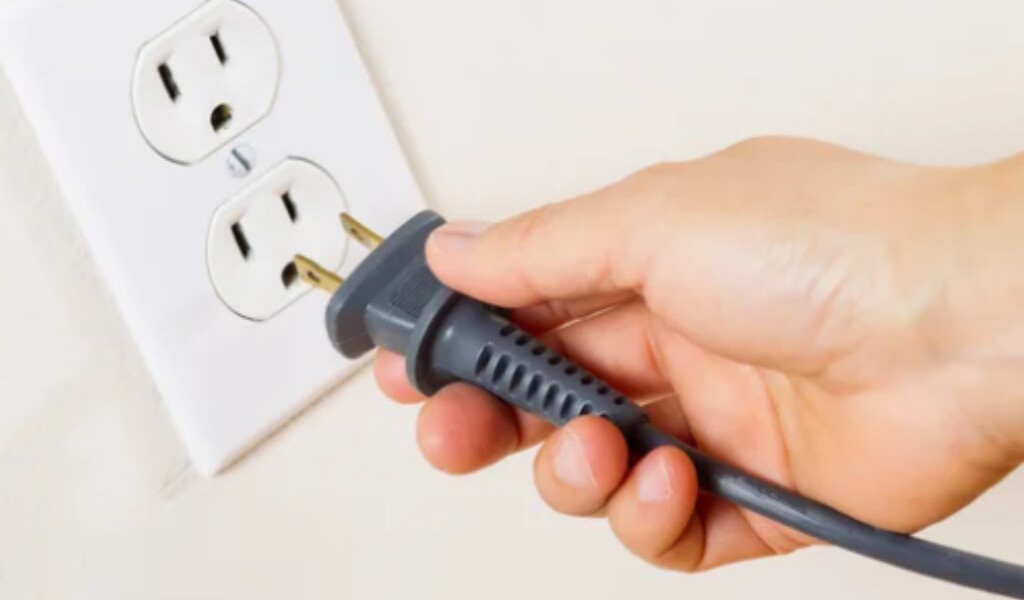As we get into the topic of caregivers in memory care, it is important to recognize the crucial role they play in supporting individuals with memory impairments. Caregivers provide the necessary assistance, compassion, and care to ensure the well-being and quality of life for those experiencing memory challenges. SonderCare understands the challenges faced by caregivers and offers a range of products designed to support and enhance their role, making their caregiving tasks easier and more efficient.
Understanding the Crucial Role of Caregivers in Memory Care
You play a crucial role as a caregiver in memory care, providing support and assistance to ensure the well-being and quality of life for individuals with memory impairments. Your role is essential in enhancing the overall well-being of patients and their families. Here are four reasons why your support is vital:
- The impact of caregiver support on patient well-being: Your presence and care have a significant positive impact on the emotional, physical, and mental well-being of individuals with memory impairments. Your compassionate and understanding approach helps alleviate anxiety, depression, and feelings of isolation.
- The importance of caregiver training and skill development: Continuous training and skill development are crucial for caregivers. By staying updated with the latest techniques and approaches, you can provide the best care possible. Training helps you understand the unique needs of individuals with memory impairments and equips you with strategies to manage challenging behaviors effectively.
- Emotional support and companionship: Patients with memory impairments often feel confused and scared. Your role as a caregiver is to provide emotional support and companionship, creating a safe and nurturing environment. Your presence and empathy help reduce their distress and enhance their overall well-being.
- Enhancing quality of life: Through your care and support, you have the power to enhance the quality of life for individuals with memory impairments. By promoting engagement in meaningful activities, maintaining daily routines, and fostering a sense of purpose, you can help patients live fulfilling lives.
As a caregiver, your dedication and commitment make a significant difference in the lives of those you care for. In the subsequent section, we will explore how SonderCare products further support you in your role of providing exceptional care.
How SonderCare Products Support Caregivers in Their Role
SonderCare products provide caregivers with the necessary tools and resources to enhance the well-being and quality of life for individuals with memory impairments. Caregivers play a crucial role in memory care, and it is important for them to receive proper training to effectively support their loved ones. SonderCare understands the importance of caregiver training and offers products that are designed to aid in caregiving tasks and make them more efficient. With the impact of technology on caregiving in memory care, SonderCare products incorporate innovative features such as wireless hand controls, backup battery systems, and bed exit alarm systems. These technological advancements not only ensure the safety and comfort of the individual with memory impairments but also provide peace of mind for the caregiver. SonderCare products are designed with compassion and the understanding that serving others requires reliable and efficient tools.
Learn About the Responsibilities of Caregivers in Memory Care
As a caregiver in memory care, it is important to understand the responsibilities that come with this role. You are tasked with providing daily care and assistance to individuals with memory impairments, ensuring their safety and well-being. Additionally, you play a crucial role in offering emotional and psychological support, creating a comforting and reassuring environment. Lastly, you are responsible for medical monitoring and medication management, ensuring that individuals receive the necessary care and treatment for their specific needs.
Daily Care and Assistance
The caregivers play a crucial role in providing daily care and assistance to individuals in memory care, ensuring their comfort and well-being. As a caregiver, you have the responsibility to meet the unique needs of those in your care. Here are some of the key responsibilities and challenges you may encounter:
- Personal care: You will assist with activities such as bathing, dressing, and toileting, ensuring their hygiene and dignity are maintained.
- Medication management: You will administer medications as prescribed, keeping track of dosages and any potential side effects.
- Emotional support: You will provide a compassionate presence, offering reassurance and comfort to individuals who may experience confusion or anxiety due to their memory loss.
- Safety monitoring: You will be vigilant in ensuring their environment is safe, identifying and addressing any hazards that may pose a risk.
To support you in your role, there are resources available such as training programs, support groups, and respite care services. Remember, your dedication and support make a significant impact on the lives of those in memory care.
Emotional and Psychological Support
You play a vital role in providing emotional and psychological support to individuals in need, offering comfort and reassurance during their journey. As a caregiver, you understand the importance of addressing the emotional and psychological well-being of those under your care. It is essential to create a safe and empathetic environment that promotes healing and fosters a sense of belonging. One way to enhance your ability to provide this support is by prioritizing caregiver self-care. Taking care of yourself allows you to be more present and attentive to the needs of others. Additionally, joining caregiver support groups can provide a valuable space for sharing experiences, gaining insights, and receiving support from others who understand the challenges you face. By prioritizing self-care and seeking support, you can better serve those in your care and create a positive impact on their overall well-being. Transitioning into the subsequent section about medical monitoring and medication management, you can ensure that you are equipped to meet their physical needs as well.
Medical Monitoring and Medication Management
As a caregiver, medical monitoring and medication management are crucial aspects of your role in memory care. Your knowledge and training in these areas are essential for ensuring the well-being and safety of the individuals under your care. Here are some key points to consider:
- Regular medical monitoring: Keeping a close eye on the individual’s health is important in detecting any changes or potential issues. This includes monitoring vital signs, such as blood pressure and heart rate, as well as observing for any signs of discomfort or distress.
- Medication management: It is your responsibility to ensure that medications are taken as prescribed. This includes administering the correct dosage at the right time, monitoring for any side effects or adverse reactions, and keeping track of medication schedules.
- Caregiver training: To effectively fulfill your role in medical monitoring and medication management, it is important to undergo proper training. This will equip you with the knowledge and skills needed to handle medications safely and accurately, as well as recognize and respond to any medical emergencies that may arise.
- Collaboration with healthcare professionals: As a caregiver, you are an integral part of the healthcare team. Regular communication and collaboration with doctors, nurses, and pharmacists are essential for providing the best possible care and ensuring that the individual’s medical needs are met.
What Do The Studies Say About the Role of Caregivers in Memory Care
What do the studies say about the role of caregivers in memory care? Studies have shown that caregivers play a crucial role in the well-being of individuals with memory loss. They provide essential support and assistance with daily activities, promote social engagement, and create a nurturing environment that can positively impact the overall quality of life for those with memory impairments. Additionally, research suggests that caregiver burnout is a significant concern, highlighting the importance of implementing strategies to prevent burnout and support caregivers in their vital role.
Impact on Patient Well-being
Caregivers play a vital role in improving the well-being of patients in memory care, providing support and assistance to enhance their quality of life. Here are four ways caregivers make a positive impact on patient well-being:
- Emotional Support: Caregivers offer companionship and emotional reassurance, creating a sense of comfort and security for patients in memory care. They listen to their concerns, provide empathy, and help manage emotional distress.
- Physical Assistance: Caregivers assist with daily activities such as bathing, dressing, and eating, ensuring patients’ physical needs are met. They also help with mobility and exercise, promoting overall health and well-being.
- Medication Management: Caregivers ensure patients take their medications as prescribed, following proper dosage and timing. They also monitor any side effects and communicate with healthcare professionals to ensure optimal medication management.
- Caregiver Support Programs: Caregivers benefit from support programs that provide resources, education, and a supportive community. These programs help caregivers manage stress, prevent burnout, and enhance their caregiving skills.
Caregiver Burnout and Its Prevention
You may be experiencing caregiver burnout if you are feeling exhausted, overwhelmed, and emotionally drained from the demands of providing care. As a caregiver, it is important to prioritize your own well-being in order to effectively care for others. Caregiver stress management is crucial for maintaining your physical and emotional health. One strategy for caregiver self-care is to establish boundaries and set realistic expectations. Remember that it is okay to ask for help and delegate tasks to others. Taking breaks and engaging in activities that bring you joy and relaxation can also help reduce stress. It is important to seek support from other caregivers or support groups who can understand and empathize with your experiences. Remember, by taking care of yourself, you are better able to provide the care and support your loved ones need.
How Can Caregivers Improve the Quality of Memory Care
To improve the quality of memory care, caregivers can focus on training and skill development, ensuring they have the necessary knowledge and techniques to provide the best care possible. Additionally, effective communication with the family and medical team is crucial in order to develop a comprehensive care plan and address any concerns or changes in the patient’s condition. By continuously learning and collaborating with others, caregivers can enhance the overall experience and well-being of those under their care.
Training and Skill Development
As a caregiver in memory care, it is important to prioritize training and skill development to ensure the best quality of care for your loved one. Here are some training techniques and caregiver support programs that can help enhance your skills and provide the best care possible:
- Ongoing education: Participate in workshops, seminars, and online courses that focus on memory care and dementia-related topics. This will help you stay updated on the latest research and techniques in the field.
- Role-playing exercises: Practice different scenarios with other caregivers or professionals to improve your communication and problem-solving skills. This can help you better understand the needs and behaviors of individuals with memory impairments.
- Peer support groups: Join caregiver support programs where you can connect with others who are going through similar experiences. These groups provide a safe space to share challenges, exchange ideas, and gain emotional support.
- Self-care: Take care of yourself physically, emotionally, and mentally. Engage in activities that bring you joy and relaxation to prevent burnout and maintain your own well-being.
Communication with Family and Medical Team
Now that you have developed your skills and knowledge through caregiver training, it’s time to focus on the importance of communication with both the family and the medical team. Effective communication is crucial in providing the best care for your loved one or patient.
When it comes to the family, open and honest communication is key. Listen to their concerns, address any questions they may have, and provide regular updates on the care being provided. Building a trusting relationship with the family will not only ease their worries but also allow for better collaboration in decision-making.
In terms of the medical team, effective communication ensures that everyone is on the same page regarding the care plan. Share any observations or concerns promptly, ask questions when needed, and actively participate in care discussions. By maintaining clear and open lines of communication, you can ensure that your loved one or patient receives the best possible care.
SonderCare’s Contribution to Caregiving in Memory Care
When it comes to memory care, SonderCare has made significant contributions to the caregiving experience. Their innovative hospital beds are designed with special features that assist caregivers in providing efficient and effective care. With a deep understanding of the unique needs of individuals with memory loss, SonderCare has created products that promote comfort, safety, and dignity, ultimately enhancing the quality of life for both the individuals receiving care and the caregivers themselves.
How SonderCare Beds Make Caregiving More Efficient
With SonderCare beds, you can easily adjust the positioning options and settings, making caregiving tasks more efficient and convenient. SonderCare beds offer a wide range of benefits for caregivers in memory care:
- Improved Comfort: The Aura Premium Hospital Bed provides a four-section mattress support platform, allowing you to find the perfect position for the individual in your care. This ensures optimal comfort and reduces the risk of pressure sores or discomfort.
- Enhanced Safety: SonderCare beds come equipped with features like a wireless hand control and a lockout control system, preventing accidental adjustments and ensuring the safety of the individual. The Aura Platinum Hospital Bed even includes a bed exit alarm system, providing added peace of mind.
- Ease of Use: These beds are designed to be user-friendly, with intuitive controls that make adjusting the positioning options a breeze. This saves you time and effort, allowing you to focus on providing quality care.
- Versatility: SonderCare beds offer different models, including an extra-wide option, to accommodate various user needs. Whether you need more space or additional weight capacity, there is a SonderCare bed that suits your caregiving requirements.
SonderCare beds are a valuable asset in memory care, providing comfort, safety, ease of use, and versatility. These benefits make caregiving tasks more efficient and convenient, allowing you to provide the best care possible for your loved ones.
Special Features of Aura Beds That Assist Caregivers
You’ll find that the special features of Aura beds greatly assist you in providing quality care. SonderCare hospital beds are designed with caregivers in mind, aiming to improve efficiency and enhance the caregiving experience. These beds offer a range of benefits that make your job easier and more effective. Let’s take a look at some of the key features:
| Aura Beds Features | Benefits for Caregivers |
|---|---|
| Four-section mattress support platform | Allows for a wide range of positioning options, ensuring the patient’s comfort and reducing the risk of pressure sores. |
| Wireless hand control | Enables easy adjustment of the bed’s position without the need to physically reach for controls, saving time and effort. |
| Backup battery system | Ensures uninterrupted functionality, even during power outages, ensuring the patient’s safety and comfort. |
| Lockout control system | Prevents accidental adjustments, providing peace of mind and minimizing the risk of injury. |
These features of Aura beds greatly improve caregiver efficiency by streamlining tasks and ensuring the well-being of the patient. With SonderCare beds, you can focus more on providing quality care and less on the logistical challenges of caregiving. In the next section, we will explore real-life case studies of memory care facilities that have benefited from using SonderCare products.
Case Studies: Memory Care Facilities Using SonderCare Products
Using SonderCare products has proven to be highly beneficial for memory care facilities, as evidenced by these real-life case studies:
- Case Study 1: At Harmony Memory Care Center, the introduction of SonderCare’s hospital beds has had a profound impact on both residents and caregivers. The adjustable features of the Aura Premium Hospital Bed have allowed residents to find their most comfortable positions, leading to improved sleep and reduced agitation. Caregivers have praised the wireless hand control and lockout control system, which have made it easier to provide personalized care and prevent accidental adjustments.
- Case Study 2: Sunrise Memory Care Home saw a significant improvement in resident safety after implementing SonderCare’s Aura Platinum Wide Hospital Bed. The bed’s bed exit alarm system has helped alert caregivers when a resident tries to get out of bed, preventing falls and injuries. Caregivers have expressed gratitude for the extra-wide design, which provides enough space for residents who require assistance during transfers.
These case studies highlight the importance of SonderCare products in memory care. Caregivers testify to the positive impact these products have on resident comfort, safety, and overall quality of life.
What Qualifications Are Required
To qualify for a caregiver role in memory care, you’ll need to have the necessary certifications and training in dementia care. This specialized field requires individuals who possess the knowledge and skills to provide compassionate and effective care for those living with memory impairments. Here are the qualifications and skills required:
- Certification in Dementia Care: Obtaining a certification in dementia care demonstrates your understanding of the unique needs and challenges faced by individuals with memory loss. This certification equips you with the knowledge to provide person-centered care and support.
- Knowledge of Memory Care Techniques: Having a deep understanding of memory care techniques is crucial. This includes knowing how to communicate effectively, implement memory-stimulating activities, and manage behavioral changes that may arise.
- Patience and Empathy: Being a caregiver in memory care requires immense patience and empathy. It’s important to approach each individual with understanding and compassion, creating a safe and supportive environment.
- Problem-Solving and Adaptability: Memory care can present unexpected challenges. Being able to think on your feet, problem-solve, and adapt to changing situations is essential in providing the best possible care.
How to Choose a Memory Care Facility with Skilled Caregivers
When it comes to choosing a memory care facility for your loved one, one of the most important factors to consider is the presence of skilled caregivers. These caregivers play a crucial role in providing the specialized care and support that individuals with memory loss need.
Skilled caregivers possess the knowledge and expertise to understand the unique challenges and needs of those with memory loss. They are trained in techniques that promote engagement, cognitive stimulation, and emotional well-being. They are adept at managing challenging behaviors and providing a safe and secure environment for residents.
When selecting a memory care facility, it is essential to inquire about the qualifications and training of the caregivers. Look for facilities that prioritize ongoing education and professional development for their staff. Additionally, consider the staff-to-resident ratio, as this can greatly impact the quality of care provided.
Additional Resources for Understanding the Role of Caregivers
You may find it helpful to explore additional resources that provide insight into the important responsibilities and impact of caregivers in memory care facilities. Understanding caregiver burnout and the importance of communication in memory care are key aspects to consider. Here are some valuable resources to assist you:
- Online Support Groups: Joining an online support group can provide a sense of community and understanding among caregivers who face similar challenges. These groups offer a safe space to share experiences and receive emotional support.
- Books and Articles: There are numerous books and articles available that delve into the role of caregivers in memory care. These resources offer valuable advice, tips, and strategies to help caregivers navigate their responsibilities effectively.
- Educational Workshops and Webinars: Participating in educational workshops and webinars can enhance your knowledge and skills as a caregiver. These events provide valuable information on topics such as dementia care techniques, effective communication strategies, and self-care tips.
- Caregiver Support Organizations: Many organizations specialize in providing support and resources for caregivers in memory care. These organizations can offer guidance, training, and counseling services to help caregivers cope with the challenges they face.
Understanding the responsibilities and impact of caregivers in memory care is crucial for providing quality care. By exploring these additional resources, you can gain valuable insights and support to excel in your role as a caregiver. In the next section, we will discuss the common challenges faced by caregivers in memory care facilities.
Common Challenges Faced by Caregivers in Memory Care
As a caregiver in memory care, you face common challenges that can be emotionally and physically draining. Providing care for individuals with memory loss requires patience, empathy, and a deep understanding of their needs. Ethical dilemmas may also arise, requiring you to make difficult decisions on behalf of your loved ones.
Emotional and Physical Strain
Taking care of a loved one with memory loss can be emotionally and physically draining for caregivers. The responsibilities can become overwhelming and lead to caregiver burnout, affecting both the caregiver’s well-being and the patient’s overall quality of life. Here are some ways in which this strain impacts both parties:
- Emotional Exhaustion: Caregivers may experience feelings of sadness, frustration, and helplessness, as they witness their loved one’s decline.
- Physical Fatigue: The demands of caregiving, such as assisting with personal care, managing medication, and providing constant supervision, can be physically exhausting.
- Decreased Social Support: Caregivers often have limited time for social activities and may feel isolated, leading to feelings of loneliness and a lack of support.
- Decline in Patient’s Well-being: When caregivers are burnt out, it can be challenging for them to provide the necessary care, resulting in a decline in the patient’s emotional and physical well-being.
As the strain on caregivers continues, it becomes crucial to address the ethical dilemmas and decision-making that arise in memory care.
Ethical Dilemmas and Decision-making
When faced with ethical dilemmas in memory care, it can be challenging for you to make decisions that prioritize both the well-being of your loved one and your own personal values. As a caregiver, you play a crucial role in ensuring the safety and happiness of your loved one, but it’s important to remember that you also have your own needs and boundaries. It is essential to be aware of the ethical dilemmas that may arise in memory care and to have the necessary tools and support to navigate through them. Caregiver training can provide you with the knowledge and skills to make informed decisions, while also helping you prevent caregiver burnout. By understanding the ethical implications of your choices and seeking guidance when needed, you can provide the best care possible for your loved one while also taking care of yourself.
| Ethical Dilemmas | Decision Making |
|---|---|
| Autonomy: Balancing the individual’s right to make decisions with their safety and well-being. | Gather information, consult with professionals, and involve the individual in the decision-making process. |
| Privacy and confidentiality: Respecting the individual’s right to privacy while ensuring their safety and well-being. | Maintain confidentiality unless there is a risk of harm to the individual or others. |
| End-of-life decisions: Navigating complex decisions about medical treatments and quality of life for individuals with advanced memory loss. | Consider the individual’s wishes, consult with medical professionals, and involve the family in the decision-making process. |
| Financial considerations: Managing the individual’s finances and resources in a way that is ethical and transparent. | Seek legal and financial advice, maintain accurate records, and involve the individual and their family in financial decisions. |
| Family dynamics: Balancing the needs and wishes of the individual with the expectations and responsibilities of family members. | Openly communicate with family members, seek mediation if necessary, and prioritize the well-being of the individual. |
The Integral Role of Caregivers in Memory Care and How to Support Them
As a caregiver in memory care, you play an integral role in providing support and assistance to individuals with cognitive impairments, ensuring their safety and well-being. Supporting caregivers in memory care is crucial to maintaining a high standard of care for those with memory loss. Here are four ways we can support caregivers in memory care:
- Comprehensive Training: Providing caregivers with thorough training is essential. It equips them with the knowledge and skills needed to effectively care for individuals with memory impairments.
- Ongoing Education: Continuous learning is important in this field. Caregivers should have access to resources and educational opportunities to stay updated on the latest techniques and strategies in memory care.
- Emotional Support: Caregiving can be emotionally challenging. Offering emotional support to caregivers through counseling or support groups can help them cope with the demands of their role.
- Respite Care: Caregivers need regular breaks to recharge and take care of themselves. Offering respite care services allows them to rest and rejuvenate, ensuring they can continue to provide the best care possible.
Looking for products that will make caregiving in memory care more effective and efficient? Look no further than SonderCare. With our range of high-quality hospital beds designed for comfort, safety, and ease of use, you can provide the best care possible for your loved ones. Visit us today and see how our products can revolutionize the way you provide home care in memory care settings.
- example
Frequently Asked Questions About Caregivers' Role in Memory Care
Caregivers in memory care play a crucial role in providing specialized support and assistance to individuals with memory-related conditions such as Alzheimer’s disease and dementia.
Caregivers in memory care are responsible for:
- Providing personal care assistance with activities of daily living (ADLs) like bathing, dressing, and grooming.
- Administering medications and managing healthcare needs.
- Creating a safe and structured environment to minimize risks.
- Offering emotional support, companionship, and social engagement.
- Planning and facilitating cognitive activities and memory-enhancing exercises.
- Monitoring and documenting changes in the individual’s condition.
- Communicating with family members and healthcare professionals to ensure holistic care.
- Managing challenging behaviors that may arise due to memory loss.
Caregivers ensure safety by removing hazards, using safety devices, implementing routines, and supervising individuals to prevent accidents or wandering.
Social engagement is vital for individuals with memory-related conditions. Caregivers facilitate social interactions to reduce isolation and enhance cognitive and emotional well-being.
Caregivers use techniques such as redirection, validation therapy, and communication strategies to manage challenging behaviors like agitation or confusion.
Yes, caregivers in memory care typically undergo specialized training to understand the unique needs of individuals with memory loss and learn effective caregiving techniques.
Caregivers in memory care should possess qualities like patience, empathy, adaptability, and a deep understanding of dementia-related challenges.
Caregivers work closely with doctors, nurses, and other healthcare providers to ensure that the individual’s medical needs are met, and they receive appropriate treatment and therapies.
Some caregivers in memory care settings offer round-the-clock care to meet the continuous needs of individuals with advanced memory loss.
The primary goal of memory care is to enhance the quality of life for individuals with memory-related conditions by providing a safe, supportive, and engaging environment that promotes physical and emotional well-being.
















